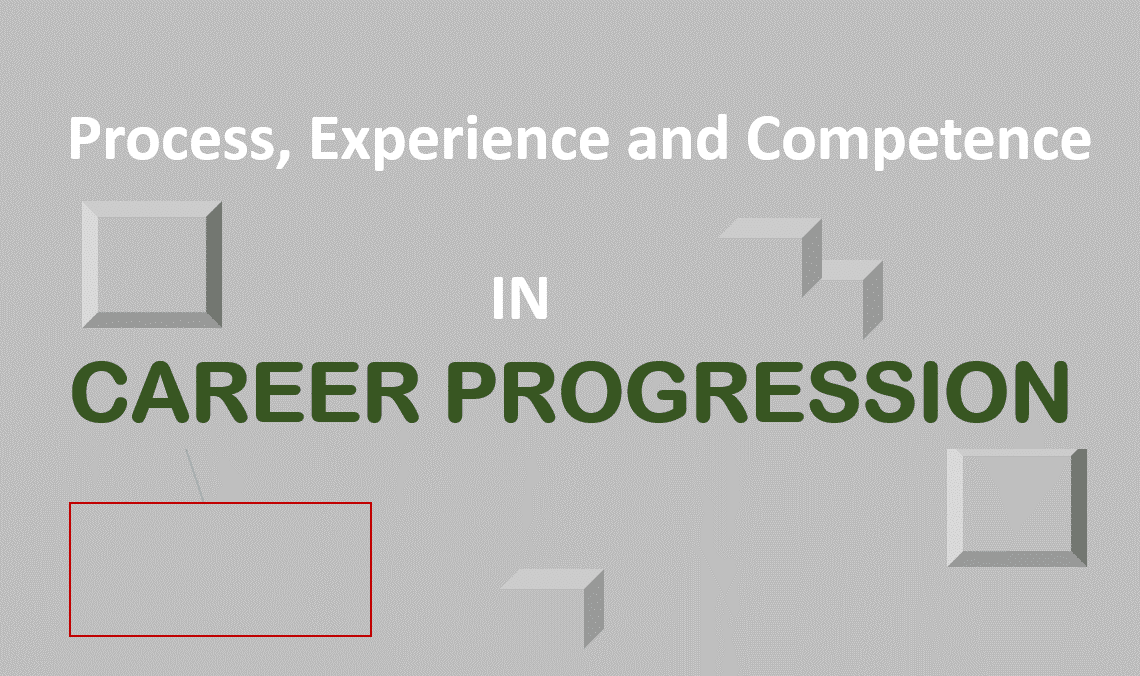Understanding process, experience and competence when it comes to career progression and growth.
Life itself is designed with a clear process and phases. Most times people don’t like organic growth that is why we have a lot of frustrated professionals all around basically battling with the challenges of due process, experience and competence in career progression.
Process, Experience and Competence in Career Progression
As Albert Einstein once said, ‘It’s not that I’m so smart, it’s just that I stay with problems longer.’ We should learn to embrace the process and thrive stage by stage in our career journey.
Process
First be Ready. constantly build capabilities, build confidence, build capacity. Opportunities will always meet preparedness.
Don’t arrive ahead of your level of competencies. Don’t attempt to succeed too soon. Grow organically, process cannot be circumvented.
ALSO READ: 10 Proven Outlines on How to Climb the Career Ladder Quickly
The notion of “opportunities meeting preparedness” is a compelling concept, suggesting that being well-prepared and continuously building capabilities increases the likelihood of success when opportunities arise. it’s essential for individuals to assess their own strengths, weaknesses, and career goals, and to make decisions that align with their personal values and aspirations.
What works for one person may not necessarily work for another, and there is no one-size-fits-all approach to career development.
Experience
Don’t be in a hurry to sit at the table, there’s a reason it’s called Process. There’s no point showing initial competence that is not sustainable.
The goal is to keep getting better at what you do to be more efficient at it. Don’t be in a hurry to earn the bag if you would not give what it takes to get the bag in the first place.
Focus on learning before earning; years of experience is not the same as years of competence. Experience alone doesn’t guarantee competence; it’s the continuous improvement and development of skills that truly matters.
If you can, avoid being promoted beyond your technical depth. It often leads to frustration, burnout and sometimes, an imposter syndrome. First things first.
Competence
Building a solid foundation of knowledge and expertise takes time, but it’s the most sustainable path to long-term success.
While this perspective is valuable and emphasizes the importance of personal and professional development, it’s also important to recognize that individual experiences and circumstances can vary. Some individuals may thrive in roles that challenge them beyond their current competencies, while others may prefer to grow gradually and organically.
YOU MAY LIKE: Examples of Quiet Quitting in the Workplace and their Causes
You look stupid when opportunities meet you unprepared. When people are elevated beyond their level of competence, the organization is often the loser. Competence and capabilities cannot be sacrificed on the altar of office politics.
Nonetheless, If you get a position you are technically not ready for, take it if you have a good relationship with your mentor in that field. If you can learn on the job, take it. Frustration and burnouts are seasonal, face it. It is a pressure of growth.
“Don’t arrive ahead of your level of competencies”. This is a ravaging scourge in the corporate landscape, with employees/job seekers trying to out “competence” each other without taking time to form deep roots in their careers.
Summarily
Build yourself and be prepared. Taking the time to truly learn and develop your skills is crucial. Rushing into promotions or trying to advance beyond your current level of competency is a dicey one. The extent to which you can carry is dependent on how prepared you are.
Folks desire big things really but lack the capacity(preparation) to accommodate it. Part of earning the bag is sitting with the processes.
Sadly the terrain which most employees find themselves in currently might not avail one the luxury to properly decipher when to learn and not earn.
There is gross under-remuneration in our industries today and a ridiculous skill and remuneration gap which makes the choice harder. like let me earn well enough and beat the terrible macro-economic realities before I start to consider if I am even fit for the role or grade.
